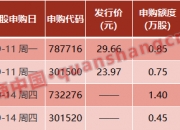世界上有这么一种东西。
There's this kind of thing in the world.
它很阴间,但凡有它的地方,必定伴随着某种神秘的仪式。
It's dark, but wherever it is, it must be accompanied by some kind of mysterious ritual.
同时,它又很鲜明,只要一提到它,你马上就会想到一个国家。
At the same time, it is clear that you will think of a country as soon as you mention it.
我其实没有在讽刺东京奥运会~
I'm not actually sarcasming the Tokyo Olympics.
今天咱们要聊的,是真·阴间的东西——冥币。
What we are talking about today is something real in the dark -- .
冥币又称阴钱、瘗钱,是传统拜祭鬼神、祖先时的必备祭祀品之一。
The coin is also called "dark money" and "gold money" is one of the necessary offerings for the traditional worship of the gods and ancestors.
但翻开历史你就会发现,其实古人在最初祭祀的时候,是不烧冥币的。
But if you turn your history, you will find that the ancients did not burn the coins when they first sacrificed them.
因为他们直接烧活人...公元前6世纪,远在地中海旁的迦太基人便常常在天灾降临的时候,选择杀死贵族的子女来祭拜神明,希望通过这种方式来获得神明的原谅。
Because they burned people directly... in the sixth century B.C., the Carthage people, far beyond the Mediterranean, often chose to kill the children of nobles to worship their gods in order to obtain God's forgiveness in this way.
往前再倒四百年,距离地中海一万六千里的殷商王朝也曾出现过人祭和人殉的明确记载。
Four hundred years later, there was also a clear record of human sacrifice and martyrdom in the Yinqin dynasty, 16,000 miles from the Mediterranean Sea.
尽管古代的封建统治者们管理国家的方式大不相同,但对于人祭和人殉的态度却出奇的一致。
Although the feudal rulers of ancient times managed the country in a very different way, there was an oddly consistent attitude to human sacrifice and martyrdom.
上到武王伐纣,下至满清入关,均有拉着妻妾或者奴仆一起陪葬的壮观场面。
There are spectacular scenes of death with wives and wives or slaves, from the top to the bottom.
当然,壮观这个词仅仅只是对统治者而言,陪葬者们感受到的,只有恐惧。
Of course, the word magnificence is merely a word of fear for the rulers.
人们急需一个能够代替自己陪葬,而且还能让死者在九泉之下与其他亡魂吹牛时仍能倍儿有面子的东西。
There is an urgent need for something that can be buried in its place, and that can still make the dead look better under the nine springs when they brag about with the rest of the dead.
于是乎,陶俑便应运而生。
So pottery >/b' came into being.
譬如大家熟知的兵马俑、汉代俑、唐三彩……
For example, you're familiar with the soldiers, the Han Dynasty, the Tang Sanctuary.....................................................................................................................
汉代时,厚葬之风盛行,为了表达对逝去先辈的孝顺,这些个王公贵族们除了会将陶俑当陪葬品外,还恨不得将自己珍藏的那点真金白银全都作为冥币陪葬。
In Hande's time, the wind of great burials prevailed, and in order to express their filial kindness to the late ancestors, the royal nobles, in addition to using pottery as a companion to the grave, wished to bury all of the true silver and silver they had treasured as delicts.
不过这份孝顺,先辈们有没有感受到我不知道,但盗墓贼们肯定是感受到了,而且非常强烈。
But I don't know if this filial one is felt by the ancestors, but the grave robbers must have felt it and were very strong.
再往后,人们开始逐渐用纸币代替黄金。
Later, people began to replace gold with banknotes.
因为他们也尴尬的发现,金子放多了,容易被盗...
Because they're embarrassed to find that the gold is too much to be stolen...
有传言称,曹操曾派摸金校尉掘了梁孝王的墓,他仅仅是靠从墓中盗得的宝贝,便养活了手下的军队整整三年。
There are rumours that Cao Cao had sent Captain Kim to dig the grave of King Liang Xiao, who had raised his troops for three full years by stealing from them.
南北朝时期,乡间流行起瘗钱,但也只是将这种钱放入坟墓中或者墓前,并没有焚烧的说法。而我们真正开始焚烧冥币,则是从唐朝开始。
In the north and south of the country, money is popular, but it's just put in the grave or in front of the grave, there's no way to burn it. And we really start burning the undercoat, starting with the Tang Dynasty.
《旧唐书》有言:“玙专以祀事希幸,每行祠祷,或焚纸钱,祷祈福祐,近于巫觋,由是过承恩遇。”
The Old Tang Book states: “It is a blessing to pray, or to burn paper money, or to pray for blessings, near a witch, by virtue of a gift.”
讲的便是唐玄宗宠臣王玙烧纸钱祈福的事情。
That's what the King of Tang Qun is saying about burning paper money for good.
也是从这个时候起,我国焚烧纸钱这项技能便被彻底点满,甚至还在元代进化出了纸扎技能。什么纸元宝、纸别墅、纸疫苗...只有你想不到,没有人民的双手做不到。
And from this very moment on, the skill of burning paper money in our country has been completely filled, and it has even evolved in the Senate. What kind of paper treasures, villas, paper vaccines... can't be done without the people's hands.
而且我们的这项技能还一度漂洋过海,引得无数老外争相模仿。
And at one point, our skills have drifted across the sea, giving rise to countless foreign rivalries.
自从YouTube上的一位黑人小哥,分享了他通过每天焚烧冥币来祭奠他的外祖母,并因此获得外祖母庇佑的经历后。
Ever since a black brother on YouTube shared his experience of being blessed by his grandmother by burning money on a daily basis.
直播烧冥币便彻底成为了海外网红的财富密码,并且如何正确的焚烧冥币,已经成了他们经久不衰的话题。
The burning of the berths on live air has become a complete source of wealth code for the overseas net, and the correct burning of the berths has become a long-standing topic for them.
有人认为,既然是用中国的冥币来进行祭奠,那么理应拜托中国的神仙,于是他就这么明目张胆的,在上帝“眼皮子底下”摆了一尊玉皇大帝...也有人将中国人祭奠时所包含的阴阳五行转变为国外更容易接受的土、气、水、火四元素,而且还顺手将咱们祭奠用的其他物品也西方化。?
It was argued that, since it was with Chinese betrothal, he should have asked China's gods, so he was so brazen that he had set up an emperor of Jade under God's “eyes” and that some had turned the five lines of the Chinese sacrifice into more acceptable elements of soil, gas, water, fire, and other things that we sacrificed in the west.
于是白酒变成了伏特加,瓜果贡品变成了炸鸡腿和烤面包...
So the white wine turns into vodka, the gourd is turned into fried chicken legs and toast...
所以,如果你看到有外国人在桌子上摆上这些东西的同时,还放了一支香和一张相片的话,请不要觉得诧异,他只是想通过这种方式,来宴请逝去的亲朋。
So, if you see a foreigner putting these on the table with a scent and a photograph, don't be surprised, he's just trying to entertain the missing relatives in this way.
而随着冥币的爆红,它的价格也一路水涨船高。
And with the berth's red, the price goes up all the way to the ship.
同样是冥币,当我们还在论斤卖时,亚马逊平台的冥币已经涨到了八十张5.99美元,折合人民币五毛钱一张。
It's also a berth, and when we're talking about weight, the Amazon platform's berth has risen to 80 pieces of $5.99, equivalent to 50 cents.
果然,外国人对来自东方的神秘力量,没有丝毫抵抗力...
As a matter of fact, foreigners have no resistance to the mysterious forces from the East...
虽然但是...我还是无法想象,当上帝看到他虔诚的信徒在天堂掏出一张来自中国天地银行且印有玉皇大帝头像的钱币时,会是一种怎样的心情...
But I still can't imagine how God would feel when he saw his true believers pull out a coin from China's heaven and earth bank with the image of the Emperor.
比较尴尬的一点是,我们的冥币在国外烧的如火如荼,但是在国内却已经打算明令禁止。
What's more embarrassing is that our betrothals are burning on fire abroad, but it's already planned to be banned at home.
自从山西省拟禁止生产、销售冥币等封建迷信丧葬用品开始,网友们就自然形成了两个派别。
Since the beginning of Shanxi's proposed ban on the production and sale of feudal obsessive funeral materials, such as betrothal coins, the network has naturally formed two factions.
一派认为祖宗之法不可变,应当保持;另一派则认为烧纸钱可能会引发山火、污染环境,理应杜绝。
One party believed that ancestral law was immutable and should be preserved, while the other thought that paper-burning money could spark fires and pollute the environment and should be eliminated.
两个派别的争论不休,也一度让我们在鱼和熊掌之间进退两难,但其实想要让二者兼得,倒也没有想象中那么举步维艰。
The argument between the two factions also made us at one time a dilemma between the fish and the bear palms, but it was not as difficult as it might have been to combine them.
早在2013年,安徽省就已经交出了一份不错的答卷。
As early as 2013, Anhui Province handed over a good response.
首先是将新墓全部集中到公墓里,而公墓则会提供一个焚烧池集中烧纸。而且安徽省并没有切断冥币的供给链,黄纸冥币,厂家照样生产,店家照样贩卖,与过去不同的是,他们限制了消费者的购买。
The first is to concentrate all the new tombs in the cemetery, which will provide a burning pool for burning paper. And the province has not cut off the supply chain of pennies, yellow paper, factory production, shop sales, and, unlike in the past, they restrict consumer purchases.
比如原来一个人可以买五箱冥币,现在要求只能买一箱,既满足了大家的祭祀需求,又杜绝了烧冥币时无意义的内卷。
For example, when a man could buy five boxes of pennies, he was now asked to buy only one case, which would satisfy everyone's sacrifice and would eliminate the meaningless inner volume of the coin burner .
仅仅是过了两三年的时间,不但安徽人民适应了这种新的祭祀方式,那些靠生产冥币而存活的中小企业也有了足够的转型时间,而且网络上也并未激起像今天这么大的舆论浪潮。
In just two or three years, not only did the Anhui people adapt to this new form of sacrifice, but the small and medium-sized enterprises that survive on the production of the undercoin also had enough time for transformation, and the Internet did not spark such a wave of public opinion as it is today.
所以,冥币改革是一个循序渐进的过程,如果只是因为贪图便利,就将人们传承了千年的羁绊一刀斩断,这才是对文明最大的不尊重。
So, the reform of the undercoin is a gradual process, and if it is facilitated by greed, it is the greatest disrespect to civilization that passes through the millennia of the chain.
《释名》有言,“墓,慕也,孝子思慕之处也”。
The "Release of the Name" says, "The Tomb, the Muyya, and the filial place of the Sons of filial love."
我们只不过是通过这种方式,来宣泄对故人的思念,如果思念无处宣泄,难免就会产生别样的情绪。
We are merely in this way to express our thoughts on those who have lost their lives, and if they do not, they inevitably produce a different kind of emotion.
焚烧冥币作为流传千年的习俗,固然有着它的不足。
There are shortcomings in the practice of burning the berths as a millennia-old practice.
但我们可以取其精华,去其糟粕。
But we can take its essence and go to its worst.
多年以后,当几缕清风裹挟着纸钱的余烬飞向天空时。
Years later, when a few clear winds took the rest of the paper money and flew to the sky.
我希望告诉我未来的孩子,这是风的轨迹,也是我们跨越了千年的思念与浪漫。
I want to tell my children of the future that this is the wind's trail and our thoughts and romance over the millennia.
而不是故作姿态,以大人早就洞察一切的语气告诉他,这不过是因为烧纸时,近地面空气急剧升温,故而导致空气膨胀上升而形成的以燃烧物为中心的尘卷风。
Instead of taking the stance, and telling him in the words that adults had long seen everything, it was merely a dust wind centred on burning, which was caused by the rapid warming of near-ground air during the burning of paper.
参考资料:
References:
【1】哔哩哔哩 ?Sense ?《中国冥币,帮老外实现了财富自由》
♪ Sense China Medal to help the foreigners get free of wealth ♪
【2】知乎《给过世的人烧纸是不是一种文化陋习》
It's a cultural habit to burn paper to the dead.
【3】知乎《为什么每次烧纸钱的时候都有风?》
"Why is there wind every time you burn paper money?"
【4】王学农《中国的冥币瘗钱及其演变过程》
Wang Xuenan, China's Requiem and its Evolution
注册有任何问题请添加 微信:MVIP619 拉你进入群

打开微信扫一扫
添加客服
进入交流群





































发表评论